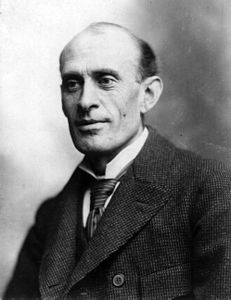Analysis of To Ligurinus
Eugene Field 1850 (St. Louis) – 1895 (Chicago)
O Cruel fair,
Whose flowing hair
The envy and the pride of all is,
As onward roll
The years, that poll
Will get as bald as a billiard ball is;
Then shall your skin, now pink and dimply,
Be tanned to parchment, sear and pimply!
When you behold
Yourself grown old,
These words shall speak your spirits moody:
'Unhappy one!
What heaps of fun
I've missed by being goody-goody!
Oh, that I might have felt the hunger
Of loveless age when I was younger!'
| Scheme | AABCCBCC DDEFFEGG |
|---|---|
| Poetic Form | |
| Metre | 1101 1101 010001111 1101 0111 1111101011 11111101 11110101 1101 0111 111111010 0101 1111 111101010 111111010 110111110 |
| Closest metre | Iambic trimeter |
| Characters | 440 |
| Words | 87 |
| Sentences | 5 |
| Stanzas | 2 |
| Stanza Lengths | 8, 8 |
| Lines Amount | 16 |
| Letters per line (avg) | 22 |
| Words per line (avg) | 5 |
| Letters per stanza (avg) | 173 |
| Words per stanza (avg) | 42 |
Font size:
Submitted on May 13, 2011
Modified on March 05, 2023
- 26 sec read
- 148 Views
Citation
Use the citation below to add this poem analysis to your bibliography:
Style:MLAChicagoAPA
"To Ligurinus" Poetry.com. STANDS4 LLC, 2024. Web. 27 Apr. 2024. <https://www.poetry.com/poem-analysis/13125/to-ligurinus>.


Discuss this Eugene Field poem analysis with the community:
Report Comment
We're doing our best to make sure our content is useful, accurate and safe.
If by any chance you spot an inappropriate comment while navigating through our website please use this form to let us know, and we'll take care of it shortly.
Attachment
You need to be logged in to favorite.
Log In